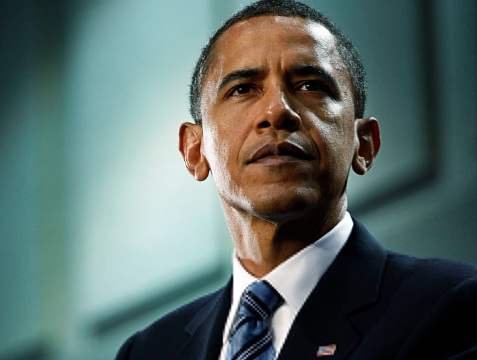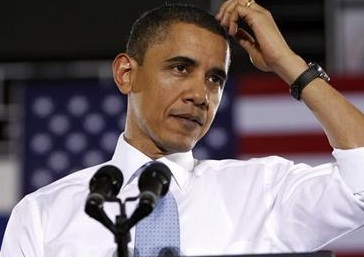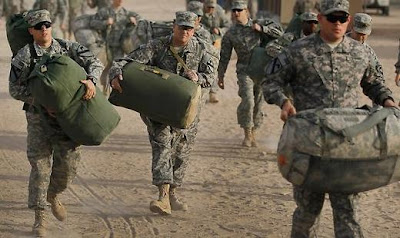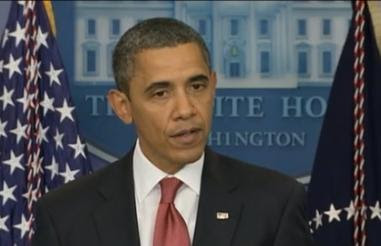 |
| U.S. President Barack Obama |
President Obama paid an effective tax rate of 20.5 percent in 2011, according to tax returns he and first lady Michelle Obama released today. That makes the president’s tax rate lower than Warren Buffett’s secretary, who pays upwards of 35 percent and whom Obama often cites on the campaign trail as justification for increasing taxes on millionaires like Buffett.
But at 20.5 percent, the president paid a markedly higher percentage of his income to the federal government in 2011 than his Republican rival Mitt Romney reported paying in 2010. Despite earning more than $21 million in 2010, Romney’s effective tax rate was a mere 14 percent.
President Obama reported earning about $790,000 last year and paid $162,000 in total taxes. He and the first lady donated $172,000 to charity, or about 22 percent of their adjusted gross income, according to their tax returns. The majority of the first family’s donations went to the Fisher House Foundation which provides scholarships to veterans’ children.
Obama has pushed hard the so-called “Buffett Rule” in campaign speeches this week. The proposed tax reform would require people earning more than $1 million to pay a minimum effective tax rate of 30 percent.
With an income less than $1 million, Obama would not see his tax rate increase under the rule. Romney, on the other hand, would see his rate from 2010 more than double.
The likely GOP nominee has yet to release his tax returns for 2011, a fact the Obama campaign was quick to criticize him for today after the president released his own returns.
“Governor Romney has yet to provide tax returns from the period in which he made hundreds of millions as a corporate buyout specialist, or as governor of Massachusetts, the experience he says qualifies him to be president,” Obama campaign manager Jim Messina said in a statement. ” What does he have to hide?”
Romney’s spokesman Andrea Saul said the former Massachusetts governor will release his 2011 return “when it is filed.” She knocked Obama for trying to “distract” voters from his economic record by putting the focus on taxes.
“It’s no surprise with the worst job creation record in modern history that President Obama would try to distract Americans from the real issues with a series of sideshows,” Saul said.
But at 20.5 percent, the president paid a markedly higher percentage of his income to the federal government in 2011 than his Republican rival Mitt Romney reported paying in 2010. Despite earning more than $21 million in 2010, Romney’s effective tax rate was a mere 14 percent.
President Obama reported earning about $790,000 last year and paid $162,000 in total taxes. He and the first lady donated $172,000 to charity, or about 22 percent of their adjusted gross income, according to their tax returns. The majority of the first family’s donations went to the Fisher House Foundation which provides scholarships to veterans’ children.
Obama has pushed hard the so-called “Buffett Rule” in campaign speeches this week. The proposed tax reform would require people earning more than $1 million to pay a minimum effective tax rate of 30 percent.
With an income less than $1 million, Obama would not see his tax rate increase under the rule. Romney, on the other hand, would see his rate from 2010 more than double.
The likely GOP nominee has yet to release his tax returns for 2011, a fact the Obama campaign was quick to criticize him for today after the president released his own returns.
“Governor Romney has yet to provide tax returns from the period in which he made hundreds of millions as a corporate buyout specialist, or as governor of Massachusetts, the experience he says qualifies him to be president,” Obama campaign manager Jim Messina said in a statement. ” What does he have to hide?”
Romney’s spokesman Andrea Saul said the former Massachusetts governor will release his 2011 return “when it is filed.” She knocked Obama for trying to “distract” voters from his economic record by putting the focus on taxes.
“It’s no surprise with the worst job creation record in modern history that President Obama would try to distract Americans from the real issues with a series of sideshows,” Saul said.
News by ABC
Read current news at http://bbc-cnn-worldnews.blogspot.com










